How the NKVD Wanted to Recruit the Chief of Intelligence of the UPR in Exile
10/21/2021
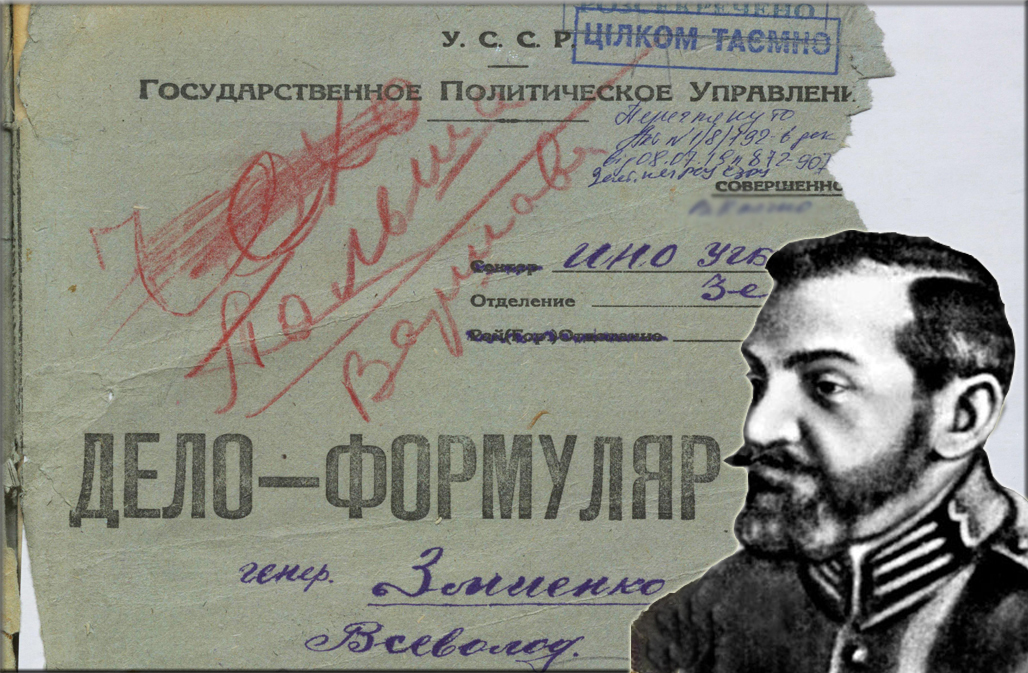
Declassified documents from the Intelligence Service’s archives sometimes unexpectedly shed light on hitherto unexplained pages in biographies of prominent figures of the Ukrainian emigration - life problems, hardship abroad, worries about relatives and friends. Representatives of the GPU-NKVD often tried to play on family feelings in order to make a person give up active work, change his position or agree to cooperate. Such measures were developed, in particular, in relation to the Head of Intelligence of the Ukrainian People's Republic in exile, Khorunzhyi (Leiutenant) General Vsevolod Zmiyenko.
As for a military serviceman, Vsevolod Yukhimovych Zmiyenko's career was quite successful. He was born in Odesa on October 16, 1886. In 1907 he graduated from the Infantry Cadet School. First served in Ochakov, then in the 11th Infantry Regiment in Zhytomyr. In 1913 Zmiyenko graduated from the Imperial Nicholas Military Academy in St. Petersburg. After that he served in the 59th Lublin Infantry Regiment in Odesa to obtain a company command qualification. With his Regiment, he went to the fronts of the First World War. He fought bravely, had military awards and rapid promotion.
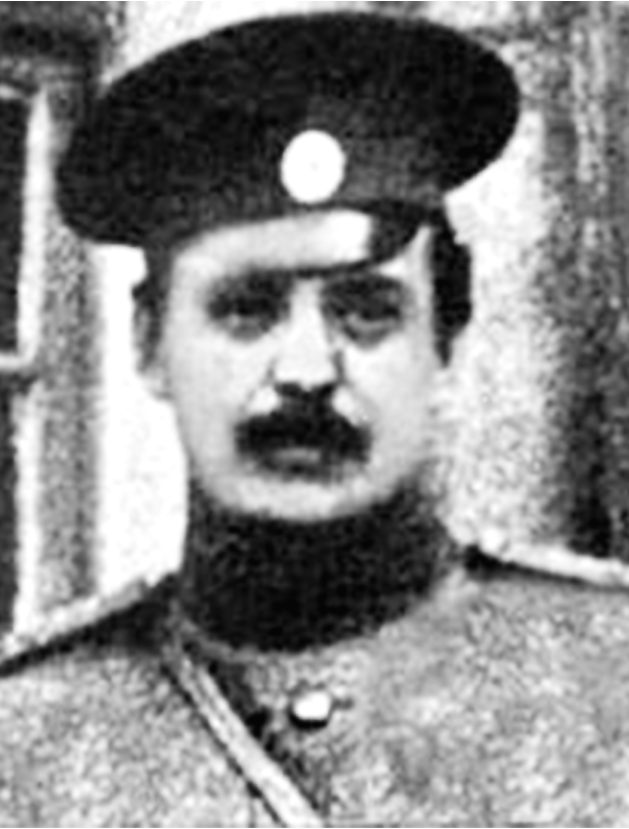 In the summer of 1917 he held the post of Chief of Staff of the 83rd Infantry Division in the Russian Imperial Army. But then everything changed. In Odesa, a 33-year-old officer plunged into the atmosphere of the Ukrainian revolution. At the time when the Winter Palace was stormed in Petrograd, Vsevolod, together with other Ukrainian military, was creating the Odesa Haydamaks Division of the Central Rada troops. He soon headed the Staff of the Division. In 1918 he became the Military Commissar of Odesa and the district, after that - the Chief of the Military Department of the Main Commission in Kherson, Tavria and Yekaterynoslav.
In the summer of 1917 he held the post of Chief of Staff of the 83rd Infantry Division in the Russian Imperial Army. But then everything changed. In Odesa, a 33-year-old officer plunged into the atmosphere of the Ukrainian revolution. At the time when the Winter Palace was stormed in Petrograd, Vsevolod, together with other Ukrainian military, was creating the Odesa Haydamaks Division of the Central Rada troops. He soon headed the Staff of the Division. In 1918 he became the Military Commissar of Odesa and the district, after that - the Chief of the Military Department of the Main Commission in Kherson, Tavria and Yekaterynoslav.
During Anton Denikin's Volunteer Army's attack on Odesa, Zmiyenko personally led the Haydamaks' fighting on the streets of Odesa. Later he invariably held responsible military positions, such as Chief of Staff of the 3rd Kherson Corps, Acting Commander of the Southeastern Group of the UPR Acting Army, Commander of the Eastern Front in the Southeastern Group of the UPR Acting Army, Head of the Commission for liquidation of the Eastern Front, Chief of Staff of the 10th Infantry Division of the Sich Riflemen of the Acting Army of the Ukrainian People's Republic.
With the Division, under pressure from Bolshevik troops, he soon retreated to the Romanian border, then to Romania, and from there through Polish-controlled lands to Volhynia. There, the Division was renamed the 1st Division of the Yevhen Konovalets Sich Rifle Corps by, and later, on its basis, Vsevolod Zmienko and soldiers of the Acting Army of the Ukrainian People's Republic, interned by the Polish authorities, Zmiyenko and his old friend Mark Bezruchko formed the 6th Sich Rifle Division.
With this Division, under pressure from Bolshevik troops, he soon retreated to the Romanian border, then to Romania, and from there through Polish-controlled lands to Volhynia. There, the Division was renamed the Yevhen Konovalets 1st Division of the Sich Rifle Corps, and later, based on it, Vsevolod Zmienko and soldiers of the Active Army of the Ukrainian People's Republic, interned by the Polish authorities, together with his old friend Mark Bezruchko, formed the 6th Sich Rifle Division.
In the Battle of Zamostya, the Division soon played a decisive role in deterring the Red Cavalry's attack on Warsaw. For the success of this combat operation, both Bezruchko and Zmiyenko were promoted to the rank of Khorunzhyi General of the UPR Army. But this only briefly sweetened the general bitterness of the defeats of the Ukrainian army, which later, under pressure from the Reds, was forced to cross the Zbruch, beyond which was Polish land. And they all were interned there.
From December 1920, together with other soldiers of the UPR Army, V. Zmiyenko was in internment camps. First - in Alexandrov, then - in Shchypiorno. His family remained in Odesa. He had no news from his wife or children, and they did not know where to look for him.
Soon V. Zmiyenko received a letter from one of his fellow soldiers from Odesa. The comrade wrote that V. Zmiyenko's mother, wife and almost all relatives died of typhus. There were three children left - daughter Halyna and sons Oleh and Vsevolod. The children were adopted by his wife's sister, Maria Dmytrivna Ryabinina-Sklyarevska, whose husband Oleksandr Ryabinin-Sklyarevskyi served in various positions in the Ukrainian Army from 1918 to 1920 as a Khorunzhyi General. He and Vsevolod Zmiyenko were married to the daughters of General Dmytro Sklyarevskyi, Commander of the Infantry Regiment stationed in Odesa, and thus were in-laws.
In 1921, relatives and acquaintances found an opportunity to send two children - Vsevolod and Halyna to their father in Poland. First, as V. Zmiyenko was constantly engaged in military-organizational and public work, the children were supervised by Klavdiya Oleksiivna Bezruchko, the wife of their father’s close friend and commander, General Mark Bezruchko.
Zmiyenko’s daughter Halyna soon got education at schools in Przemyśl, Warsaw, Berlin and Vienna. In 1948, she moved to Canada, where she was an active public figure, headed the Union of Ukrainian Women of Canada and supporters of the State Center of the Ukrainian People's Republic. In 1992, Halyna Vsevolodivna Zmiyenko-Senyshyn, as Secretary of the Presidium of the Ukrainian National Council, took part in the transfer of powers and Kleinods (Hetman regalia-transl.) of the State Center of the Ukrainian People's Republic in exile to President of Ukraine Leonid Kravchuk. She published a significant number of journalistic and historical works in the Ukrainian- and English- language publications. Some of them were published in Ukraine as a separate book, which also contains personal memories of the life of Halyna and her relatives.
Open sources mention that Zmiyenko’s son Vsevolod studied in Warsaw. During World War II he lived in different European countries. Eventually, in 1945, he allegedly died. The fate of the other son, Oleh, was unknown. In this regard, the researchers wrote the following: “What happened to Oleh, who remained in Ukraine, could not be established even by the SBU, because Halyna never received any details from the secret service”.
The answer to this question is in the declassified documents from the Branch State Archives of the Foreign Intelligence Service of Ukraine. At the same time, they shed light not only on the fate of Zmiyenko's son, but also show how the NKVD of the USSR cynically and ruthlessly tried to use close family relations in the struggle against its ideological opponents, at this destroying people’s lives.
In exile, Khorunzhyi General Vsevolod Zmiyenko headed the intelligence and counterintelligence section of the UPR Ministry of Military Affairs from 1928 to 1936. Particular importance was attached to the work of intelligence. Its task was to gather information about the situation in Ukraine in order to prepare conditions for the overthrow of Soviet power and restoration of independence and state sovereignty of the Republic by intensifying the guerrilla-insurgent movement in the USSR and other activities.
When the UPR’s intelligence was headed by V. Zmiyenko, this work intensified considerably, which was of great concern to the Soviet secret services. They began to gather information about him and thinking about the ways to counteract him. Accordingly, they opened an operational case, which included all the information received from the agency and other sources.
One of the documents states: “According to many sources, it would be possible to communicate with Zmiyenko. He is quite balanced and does not belong to the extreme Petliurist wing. Zmiyenko is not blinded by zoological chauvinism and is able to approach the assessment of Petliura's activity objectively, even critically. He does not like Poles. A meeting with him could be conducted by a person who knows him from the past service… Some reason is needed for this, for example, if his son were found or something similar that could motivate him to go to a meeting… “. (BSA of the SZR of Ukraine. - F. 1. – Case 6945. - V. 1. - P. 1).
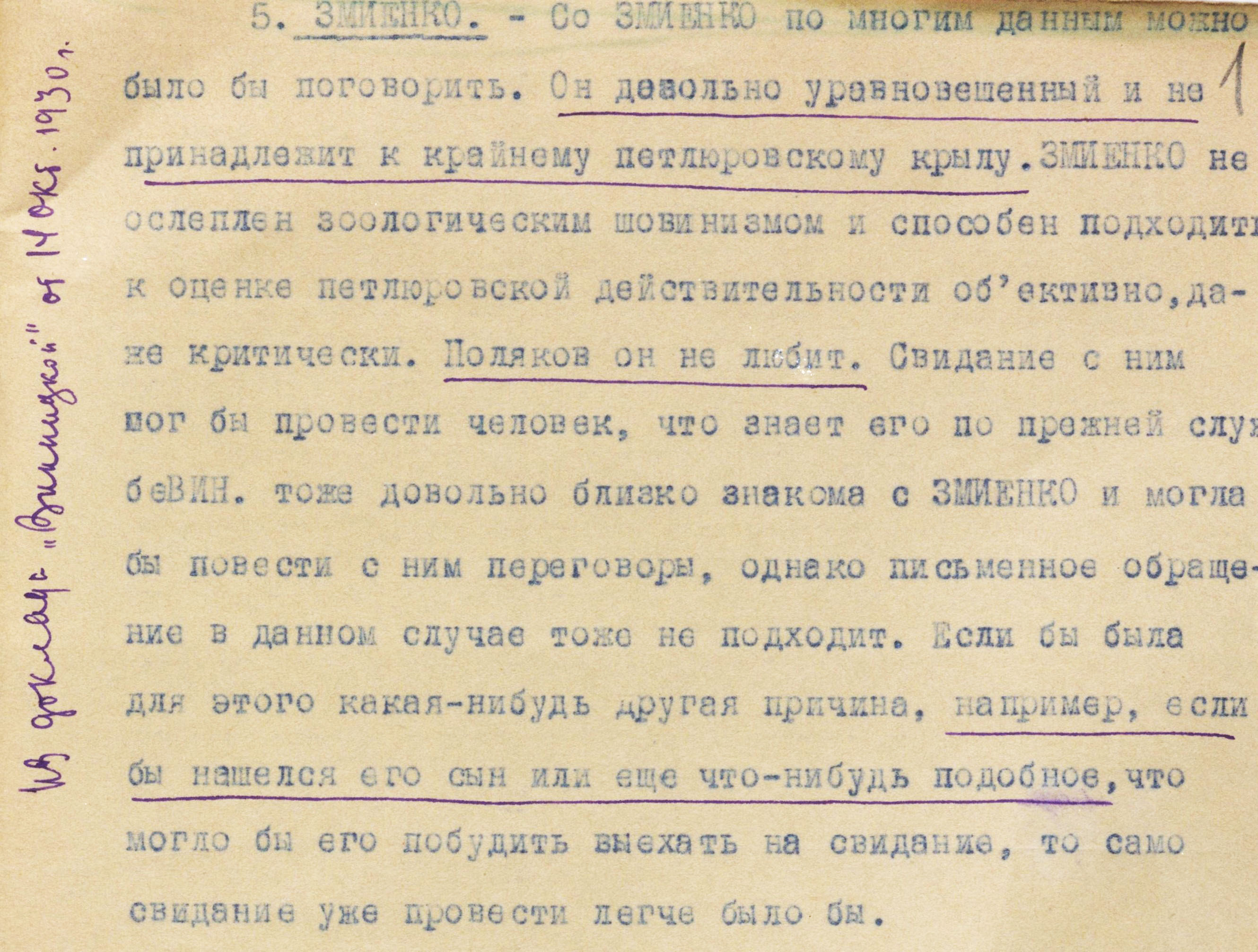 The NKVD immediately seized on the idea to use V. Zmiyenko's second son, Oleh, who remained on Soviet territory. It was a tested method of influence, which almost always led to the desired result. For the sake of safety of the dear and their being left alone (and especially alive), the objects of operational interest were forced to do anything.
The NKVD immediately seized on the idea to use V. Zmiyenko's second son, Oleh, who remained on Soviet territory. It was a tested method of influence, which almost always led to the desired result. For the sake of safety of the dear and their being left alone (and especially alive), the objects of operational interest were forced to do anything.
According to archival documents, seeking Oleh in Odesa clarified the situation. It turned out that in 1921 he could not be taken to Poland with his brother and sister because his birth certificate was not found. Without documents it was impossible to transport the child across the border. So he found himself in the family of his aunt Maria Dmytrivna Ryabinina-Sklyarevska.
When the Chekists found this out in 1931, they immediately decided to arrest her husband, Oleksandr Ryabinin-Sklyarevskyi, and obtain all the necessary information about the boy from him during interrogations. The pretext was found easily, because he was a former tsarist officer, and therefore unreliable and one who could be hostile to the Soviet government. A detailed study of the biography of O. Ryabinin-Sklyarevskyi showed that he was a Colonel in the General Staff of the Russian Imperial Army, and after 1917 - a Khorunzhyi General of the Army of the Ukrainian People's Republic. That was enough to carry out any procedural action against him. In addition, it turned out that in 1930 he had already been arrested in the “Spring” case against members of an alleged military counter-revolutionary organization. But then no evidence was found against him and he was released from custody.
During a call to the Odessa district department of the GPU of the USSR, O. Ryabinin-Sklyarevskyi said that back in 1924, his wife's sister, Valentyna Sklyarevska-Valchukevych, came to them from Moscow and took Oleh with her. He allegedly studied at the Institute of Labor Education, had the surname Sklyarevskyi - after the maiden name of his mother. He knew nothing about his father, Vsevolod Zmiyenko. He was deliberately told nothing about him to avoid unnecessary problems. After all, V. Zmiyenko's activity in the days of the national liberation movement, as an active participant in counteracting the Soviet government, became the reason for his being on the list of political criminals wanted by the GPU. And this threatened with serious trouble for all relatives.
The Chekists approached Oleh only in 1934. At that time, they already knew that due to his aunt's divorce and other problems in the family, he had been leading a homeless life in Moscow for some time. He was then detained by police for petty theft, sent to an institution for homeless minors, and from there to the Institute of Labor Education. At the request of the orphanage, he received a place in a dormitory. In letters to Odesa to Maria Dmytrivna Ryabinina-Sklyarevska, whom he called his mother, he wrote that he worked as a draftsman at the Stalin Automobile Plant, then was laid off. He soon became a draftsman at the “Kalibr” plant.
Having analyzed the information gathered, in May 1935 the Chief of the Foreign Department of the UGB of the NKVD of the Ukrainian SSR, Abram Sapir, drew the following conclusion: “I consider it expedient to study Oleh Zmiyenko comprehensively and, if he has positive traits, to discuss the issue of his relocation to Ukraine, approximately to Odesa, where he will be able to live with the Ryabinins. Zmiyenko's son's stay in Ukraine will allow us to take some measures against Zmiyenko himself in a favorable situation”. (BSA of the SZR of Ukraine. - F. 1. – Case 6945. - Vol. 1. – P. 43).
In another document addressed to the leadership of the Foreign Department of the NKVD of the USSR, Abram Sapir pointed out: “We have planned measures to recruit Vsevolod Zmiyenko or to send our agent to establish contact with him and infiltrate him into the Intelligence of the Ukrainian People's Republic. In both the first and the second case, the combination is designed to use Oleh Sklyarevskyi…”. (BSA of the SZR of Ukraine. - F. 1. – Case 6945. - Vol. 1. – P. 44).
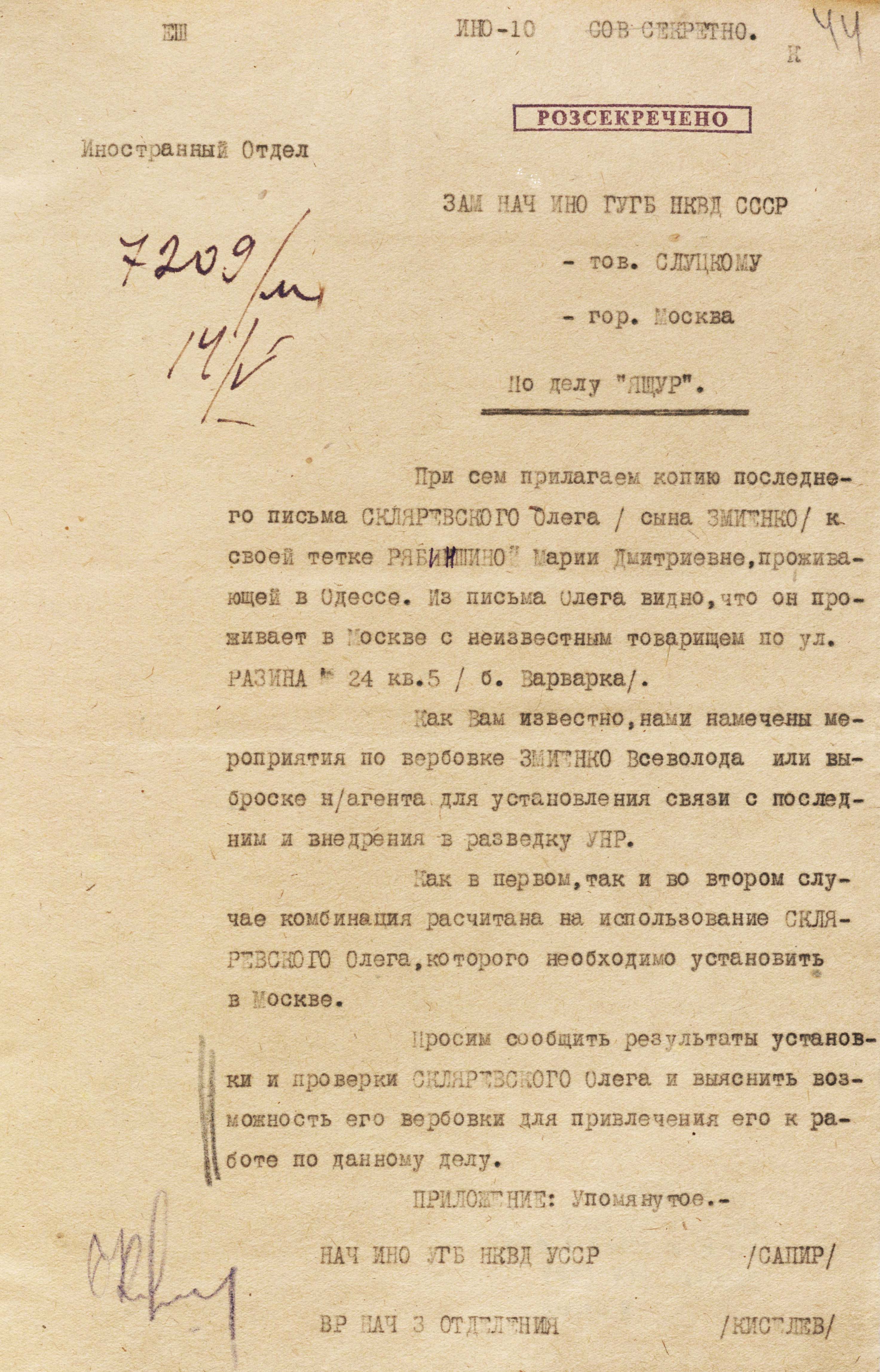 Meanwhile, events were unfoldeding rapidly and gaining momentum. In 1936, a report was received from abroad that an agreement had been reached between the Chief of the UPR Intelligence, General Vsevolod Zmiyenko, and the Chief of the OUN Intelligence, Colonel Roman Sushko, to combine the activities of the two intelligence services, which was not true. But the leadership of the NKVD of the USSR was very concerned about this, and it instructed to speed up the development of measures to neutralize V. Zmiyenko’s activity.
Meanwhile, events were unfoldeding rapidly and gaining momentum. In 1936, a report was received from abroad that an agreement had been reached between the Chief of the UPR Intelligence, General Vsevolod Zmiyenko, and the Chief of the OUN Intelligence, Colonel Roman Sushko, to combine the activities of the two intelligence services, which was not true. But the leadership of the NKVD of the USSR was very concerned about this, and it instructed to speed up the development of measures to neutralize V. Zmiyenko’s activity.
In the situation, the Chekists decided not to waste time on additional study of Oleh, training, education in the right direction, bringing to him information that his father was an enemy of Soviet power, developing a legend to introduce him to the Poles in the USSR, and then to infiltrate him into Poland.
This was the original idea. They chose a different way. He was arrested for distributing allegedly anti-Soviet literature at the factory (in reality, those were old Russkoe Slovo newspapers that his neighbor kept in a shed in the backyard and used as kindling material).
Oleg Sklyarevskyi was sent to Odesa for further investigation. The investigation lasted almost two years. Simultaneously, Oleksandr Ryabinin was arrested, whom they tried to use to gather information about General Zmiyenko and his son. But they could not get any valuable information from him. Instead, according to archival documents, in 1938 he was sentenced to 10 years in a labor camp as a German spy. Of course, on trumped-up charges.
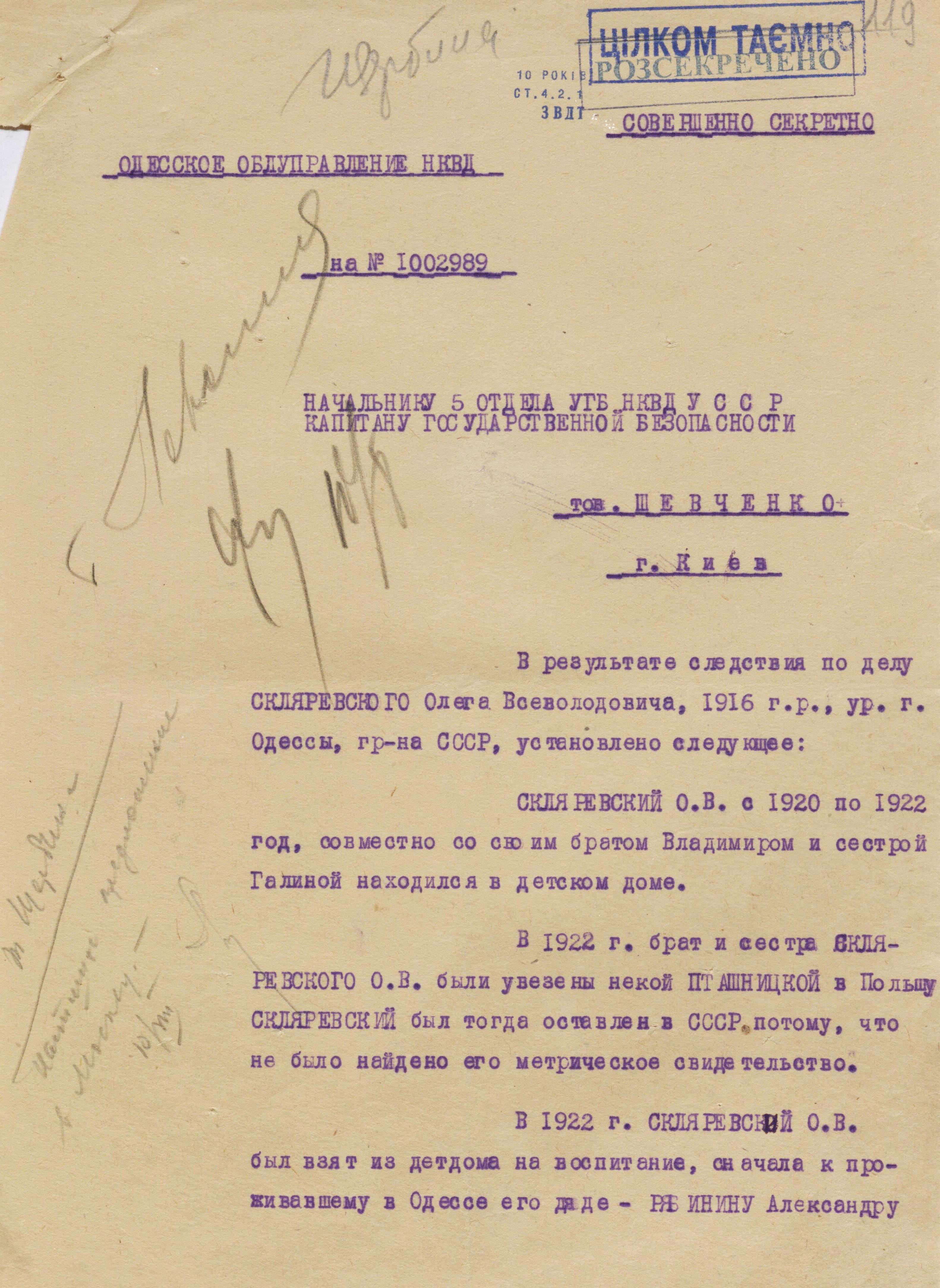
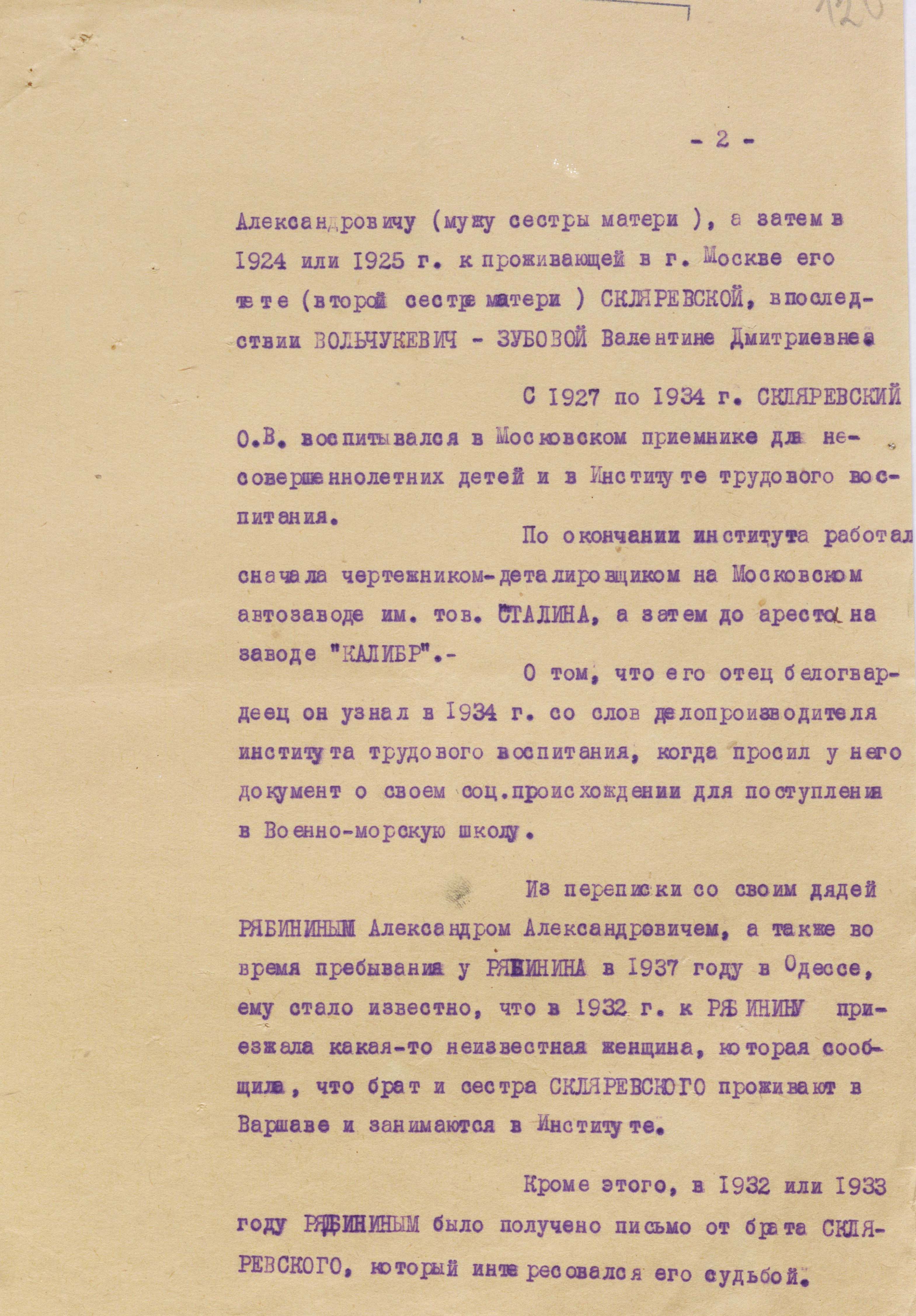
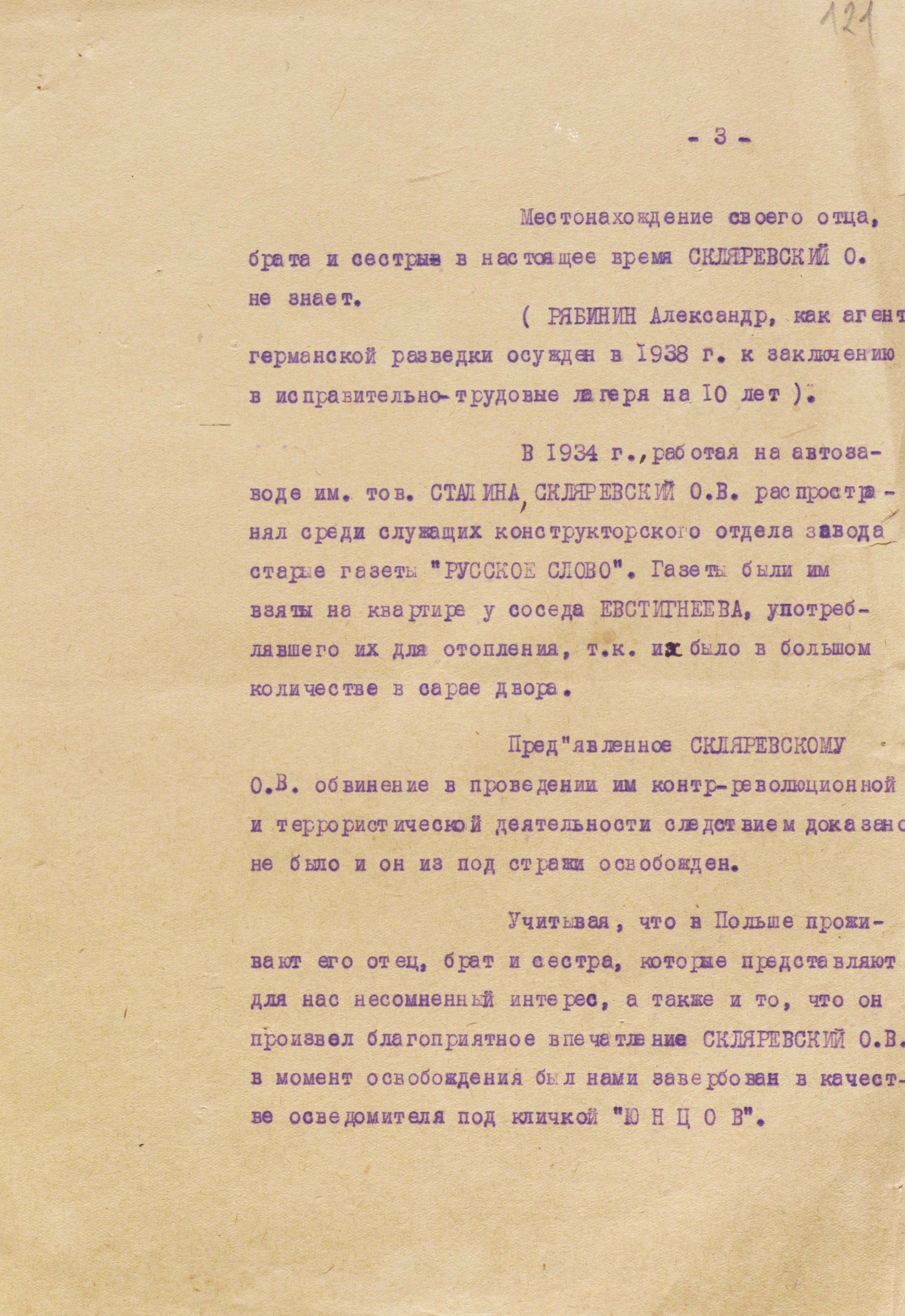
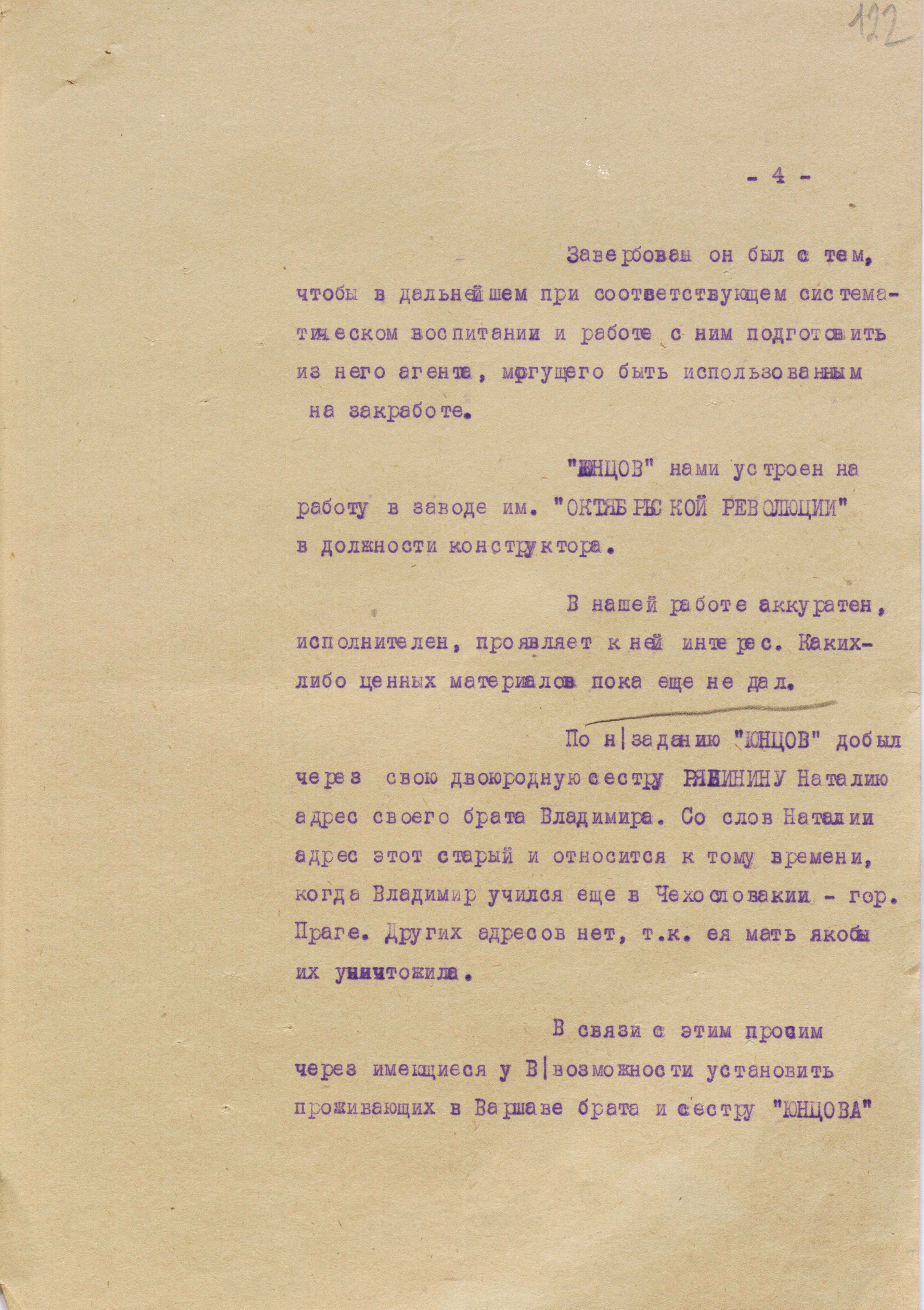
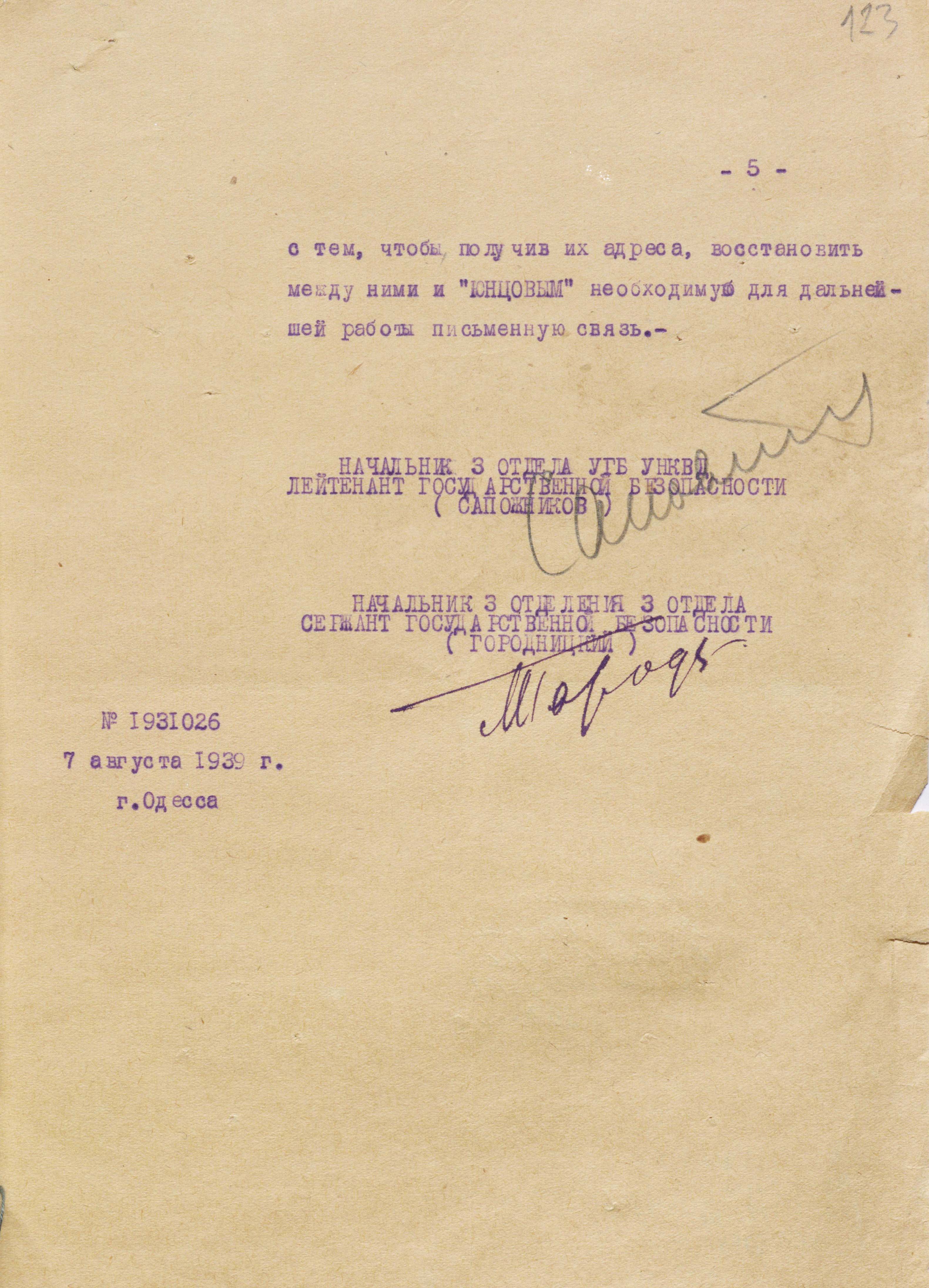 In the same year, Oleh Sklyarevskyi was released from custody “in the absence of evidence of counter-revolutionary and terrorist activity”. At the same time, they began to work purposefully with him for possible sending him abroad. At this, they told him who his father was. Through close relatives, they urged to get the address of Vsevolod's brother, who at that time lived and studied in Prague. As one of the options, they considered his allegedly escape to Poland to his sister and brother with the aim of further infiltration into the circle of his father’s acquaintances and colleagues- intelligence officers.
In the same year, Oleh Sklyarevskyi was released from custody “in the absence of evidence of counter-revolutionary and terrorist activity”. At the same time, they began to work purposefully with him for possible sending him abroad. At this, they told him who his father was. Through close relatives, they urged to get the address of Vsevolod's brother, who at that time lived and studied in Prague. As one of the options, they considered his allegedly escape to Poland to his sister and brother with the aim of further infiltration into the circle of his father’s acquaintances and colleagues- intelligence officers.
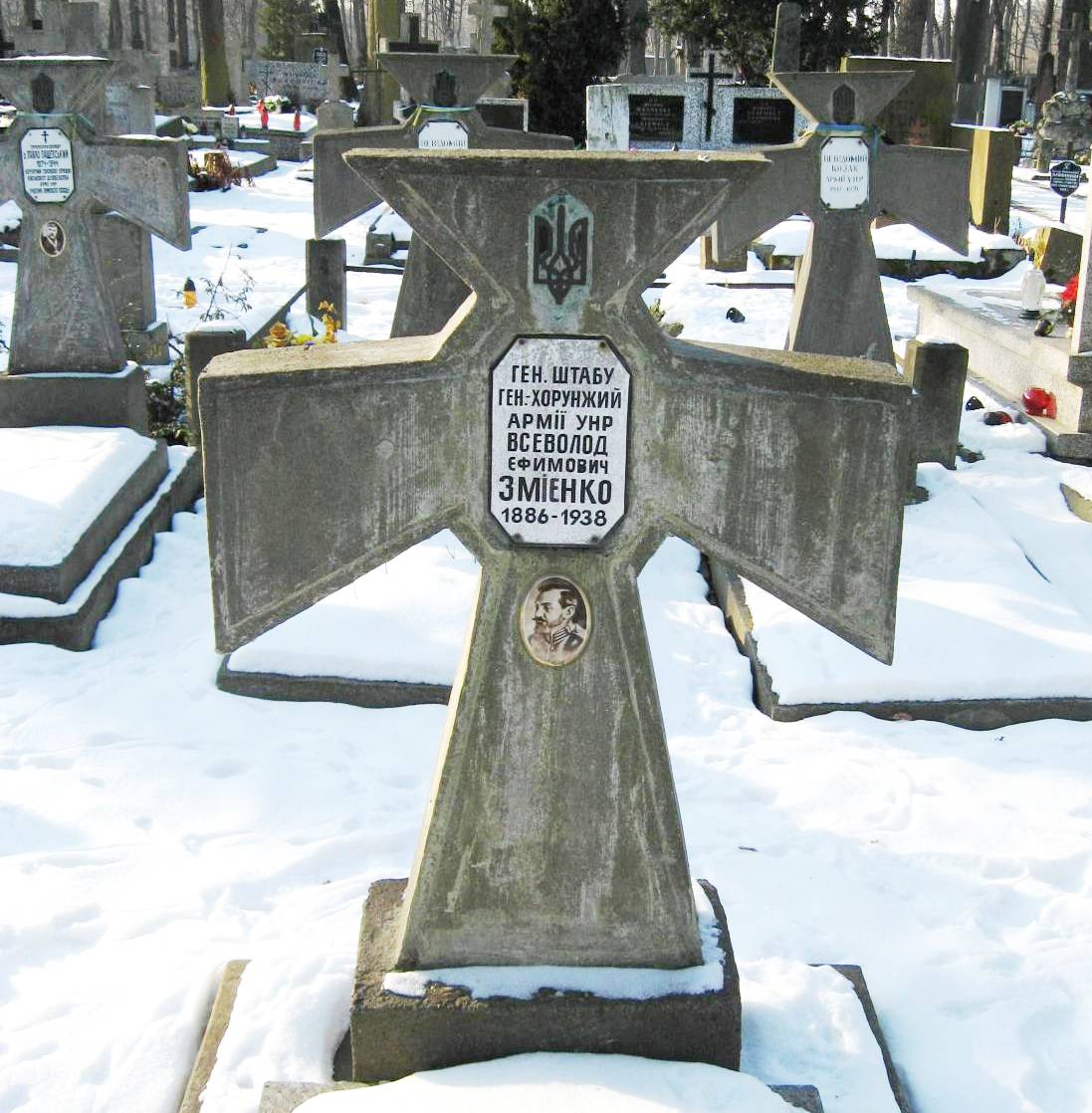 Meanwhile, General Vsevolod Zmyienko died on October 30, 1938. The NKVD's foreign agents could not obtain information about the whereabouts of his daughter and son. That's why they abandoned the idea of sending Oleh abroad. Moreover, they were afraid that he would stay in Poland and tell about everything they tried to prepare him for.
Meanwhile, General Vsevolod Zmyienko died on October 30, 1938. The NKVD's foreign agents could not obtain information about the whereabouts of his daughter and son. That's why they abandoned the idea of sending Oleh abroad. Moreover, they were afraid that he would stay in Poland and tell about everything they tried to prepare him for.
Eventually, in May 1940, further proceedings were suspended and Oleh Sklyarevskyi was left alone “as unfit for work abroad”. He resigned and left for Moscow. There is no information about his further fate in the archives.
In this dramatic story, the Chekists' plan to infiltrate the son into his father's environment abroad and create conditions for his recruitment by the NKVD did not work. But at what cost was everything done? At the cost of arrests, interrogations, long-term imprisonment of relatives and friends, breaking human lives…
